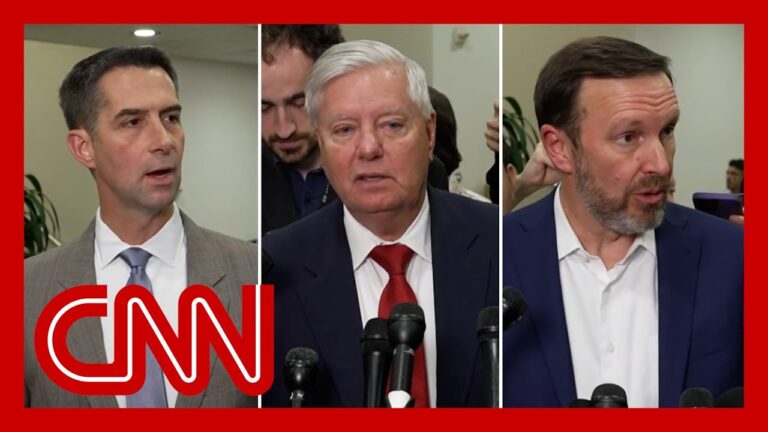Video at the bottom!
On Capitol Hill, senators concluded a classified briefing with Defense Secretary Hagel and key national security officials regarding recent U.S. strikes on Iran’s nuclear facilities. President Trump has declared these strikes as having “obliterated” Iran’s nuclear program, but some senators expressed skepticism about that claim.
While there is bipartisan agreement that the strikes resulted in a significant setback for Iran, opinions differ on the duration of that setback. Some Republican senators indicated that Iran could still develop a nuclear weapon within a few years. Democratic leaders, like Chuck Schumer, challenged Trump’s assertion of complete annihilation, suggesting they did not receive satisfactory answers in the briefing.
The White House has maintained a unified stance that the strikes were effective, despite preliminary assessments suggesting a more limited impact. Intelligence reports varied, with some stating that the Iranian nuclear program might only have been delayed by a few months.
The administration’s messaging aims to frame the outcome as a success while also managing ongoing questions about Iran’s remaining capabilities and intentions. This debate reflects broader party divisions on national security, with critical attention on the implications of the strikes moving forward.
Discussions are ongoing about the future of diplomatic relations with Iran, with questions about how the U.S. will address the Iranian regime’s nuclear ambitions remaining unresolved. Insights revealed from the Pentagon suggest some strategic impacts, including damage to critical facilities, but the full extent of the strikes’ effectiveness is still under scrutiny.


